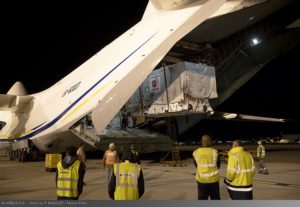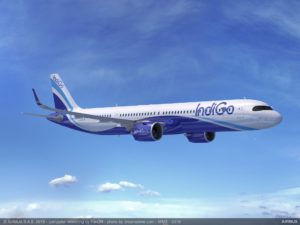
Airbus participates in New Zealand Aerospace Challenge
NEW DELHI: Airbus has participated in the New Zealand Aerospace Challenge 2019, providing the winning finalists with access to the Airbus OneAtlas data platform.
The platform is a collaborative environment with links to premium satellite imagery and the capability to perform large-scale image processing, extract industry-specific insights and benefit from Airbus assets for solution development.
The New Zealand Aerospace Challenge 2019 focussed on the theme of contributing to sustainable agriculture, using the very latest satellite and unmanned aircraft (UA) technology to detect, monitor or measure water or soil pollution. The event was organised by the City of Christchurch and Airbus in association with the New Zealand Ministry of Business, Innovation and Employment.
More than 33 entries were received for the challenge from small businesses, university students and start-ups. The winner team, Seequent, proposed a cloud-based, global remote sensing solution for monitoring lake water health.
According to Seequent, only 65 of New Zealand’s 3,820 lakes are monitored for water quality. Their solution will enable remote sensing of water quality levels, with the capacity to monitor an entire region’s lakes all at once.
Andrew Mathewson, Managing Director Airbus Australia Pacific said the Challenge demonstrated that space technology and sustainability are converging in new and exciting ways.
“Airbus is proud to be a partner in the New Zealand Aerospace Challenge 2019. There is so much opportunity to use satellite data to better manage agricultural activities, but also to combat global environmental challenges like climate change. Seequent’s solution is a great example of this type of innovative and practical technology to enable better management of our environment,” Mathewson said.
Airbus provides space based satellite information systems in support of a range of farming practices. They include crop monitoring and income optimisation as well as grassland production index enabling insurers to cover cattle breeders against shortages in forage yield. This information, when integrated with data such as agronomy, soil and climate records, can be used to develop and refine new tools to assess, monitor, improve and redress environmental and economic risks in the industry.
Airbus also combines premium imagery and industry-leading expertise to deliver Thematic Services, including change detection capabilities, which allow monitoring and analysis using machine learning to automatically detect and identify infrastructure changes.
Additional Thematic Services involve those to help serve environmental needs. These include Starling, which helps companies monitor their forest impact with unprecedented accuracy, and Verde, a brand new service that delivers detailed crop analytics with easy-to-use vegetation maps. OneAtlas is available at oneatlas.airbus.com

